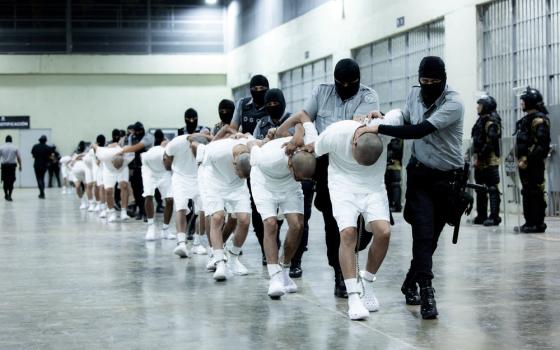By JOHN L. ALLEN JR.
New York
Commenting this morning on his recent trip to Turkey, Benedict XVI appeared to sharpen his rhetoric on religious freedom, challenging Muslim governments to ensure that expressions of religious faith do not fail to protect individual freedom, that they do not shade off into fundamentalism, and that they’re capable “of rejecting every form of violence.”
In contrast with remarks Nov. 29 during a Mass in Ephesus, when the pope limited himself to a passing reference to the “fine witness” of Italian missionary Fr. Andrea Santoro, shot to death in Trabzon, Turkey, in February by a young Muslim who said he was agitated by the Danish cartoon controversy, Benedict this morning also specifically added that Santoro paid for that witness “with his own blood.”
At the same time, Benedict told the large crowd in the Paul VI Audience Hall in the Vatican that he had returned with “a soul full of gratitude” for the trip to Turkey, where he said he felt “welcomed and understood.”
Benedict XVI expressed “great esteem for the inhabitants of the beloved Turkish nation,” saying he had traveled in the footsteps of his predecessors Pope Paul VI and John Paul II, both of whom made trips to Turkey, as well as Pope John XXIII, who served as the Apostolic Delegate in that nation from 1935 to 1944.
The pope spoke during his Wednesday General Audience, describing papal trips in light of the vision of the Second Vatican Council (1962-65) as addressed to three “concentric circles”: the local Catholic community, the wider Christian faithful, and finally to the believers of other religions and to all humanity.
Benedict said his trip, which he acknowledged was “not an easy one under several aspects,” had special significance at the third level. Turkey, he said, “is an overwhelmingly Muslim country, but one which is regulated by a constitution that affirms the secular character of the state.”
In that regard, Benedict said, Turkey is “emblematic” of what he described as a “great challenge at the world level” – to rediscover “the reality of God and the public significance of religious faith,” but at the same to ensure that "the expression of that faith is free," not marred by "fundamentalistic degenerations," and "capable of firmly repudiating every form of religious violence."
That, in a nutshell, captures the challenge which Benedict has offered in his conversations with Muslims since his election to the papacy.
Benedict said he wanted to “insist that Christians and Muslims commit themselves together to the defense of the human person, of life, justice and peace.” In that regard, he said, “the distinction between civil and religious spheres is a value, and the state must assure both to citizens and to religious communities liberty of cult.”
The pope also spoke about his moment of silent prayer alongside Istanbul’s chief Islamic cleric in the Blue Mosque on Nov. 30, describing it as an “initially unexpected” and “very meaningful” gesture that Divine Providence had allowed him to undertake.
Benedict characterized what happened as “a few moments of recollection in that place of prayer,” and suggested that he had addressed himself “to the one Lord of Heaven and Earth, the merciful Father of all humanity." He said he hoped the act would lead “all believers to recognize themselves as creatures,” and said that it was “a witness to true fraternity.”




